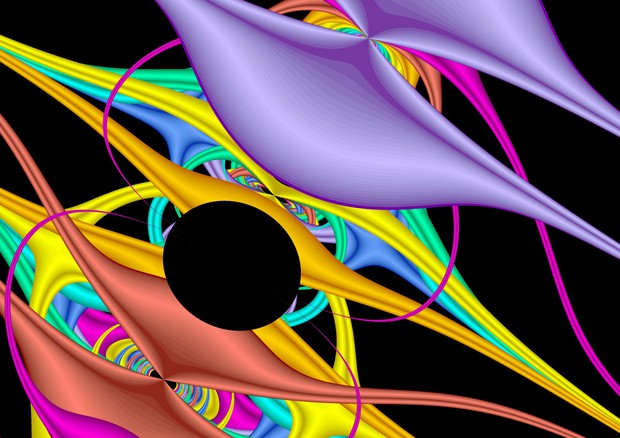Un virus 'buono' sabota i tumori del cervello dall'interno / A 'good' virus sabotages tumors of the brain from within
Un virus 'buono' sabota i tumori del
cervello dall'interno / A 'good' virus sabotages
tumors of the brain from within.
Segnalato dal Dott. Giuseppe Cotellessa /
Reported by Dr. Giuseppe Cotellessa

Già provato su pazienti adulti, viene ora testato sui bambini
Una nuova arma si prepara a entrare in azione contro i tumori del cervello nei bambini: si chiama Delta-24-RGD ed è un virus 'buono', geneticamente modificato per sabotare le cellule tumorali dall'interno. Già usato con successo contro il glioma in pazienti adulti, nei test condotti su modelli animali ha dimostrato di essere efficace e sicuro anche contro due tumori cerebrali pediatrici, il glioma di alto grado e il glioma pontino intrinseco diffuso, riuscendo ad aumentare la sopravvivenza dei topi trattati. I risultati della sperimentazione sono pubblicati sulla rivista Nature Communications dal gruppo internazionale coordinato dall'Health Research Institute di Navarra (Idisna),in Spagna, dove sono già partiti i primi test clinici su alcuni bambini.
Questo passo in avanti non era scontato perché, come spiegano gli stessi ricercatori, i gliomi dei bambini sono difficili da trattare e geneticamente diversi da quelli degli adulti. Nel caso del glioma di alto grado, il trattamento prevede solitamente la combinazione di chirurgia, radio e chemioterapia; tutt'altra storia per il glioma pontino intrinseco diffuso, per cui l'intervento chirurgico non è indicato. La svolta, in questi casi così difficili, potrebbe venire proprio dai cosiddetti virus 'oncolitici', che colpiscono in modo mirato solo le cellule tumorali.
L'impiego di questi virus è già stato approvato dalla Food and Drug Administration (Fda) statunitense per il trattamento del melanoma e lo stesso virus Delta-24-RGD ha dimostrato le sue potenzialità nei pazienti adulti con glioma. I ricercatori guidati da Marta Alonso dell'Idisna lo hanno testato su topi in cui erano stati inoculati due tipi di glioma infantile e al termine della sperimentazione hanno osservato un aumento della sopravvivenza. Nessuna particella virale è stata poi rintracciata nel sangue dei roditori, a dimostrazione della sicurezza del trattamento. Ulteriori studi hanno evidenziato come il virus sia in grado di attivare il sistema immunitario che a sua volta contribuisce alla risposta anti-cancro.
ENGLISH
A new weapon is preparing to take action against brain tumors in children: it's called Delta-24-RGD and is a 'good' virus, genetically modified to sabotage cancer cells from within. Already successfully used against glioma in adult patients, in tests conducted on animal models it has been shown to be effective and safe even against two pediatric brain tumors, high-grade glioma and diffuse intrinsic pontine glioma, managing to increase the survival of mice treated. The results of the experimentation are published in the journal Nature Communications by the international group coordinated by the Health Research Institute of Navarra (Idisna), in Spain, where the first clinical tests on some children have already started.
This step forward was not obvious because, as the researchers themselves explain, children's gliomas are difficult to treat and genetically different from those of adults. In the case of high-grade glioma, the treatment usually involves the combination of surgery, radio, and chemotherapy; a completely different story for the diffuse intrinsic pontine glioma, for which the surgery is not indicated. The turning point, in these difficult cases, could come from the so-called 'oncolytic' viruses, which target only cancer cells.
The use of these viruses has already been approved by the US Food and Drug Administration (FDA) for the treatment of melanoma, and the Delta-24-RGD virus itself has demonstrated its potential in adult patients with glioma. The researchers led by Marta Alonso of Idisna tested it on mice in which two types of infantile glioma had been inoculated and at the end of the experiment they observed an increase in survival. No viral particle was then traced in the blood of rodents, demonstrating the safety of the treatment. Further studies have shown that the virus is able to activate the immune system which in turn contributes to the anti-cancer response.
Da:



Commenti
Posta un commento